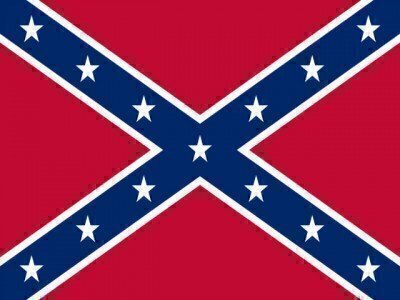A divided U.S. Supreme Court said on Thursday that the state of Texas has the right to ban a specialty license design that features the Confederate battle flag.
Link: Read The Decision
 In the 5-4 decision in the Walker III V. Texas Division, Sons Of Confederate Veterans, Inc., case, Justice Stephen Breyer said that the state’s decision fell under the government speech doctrine of the First Amendment, superseding the private free speech claims of the Sons of Confederate Veterans (or SCV).
In the 5-4 decision in the Walker III V. Texas Division, Sons Of Confederate Veterans, Inc., case, Justice Stephen Breyer said that the state’s decision fell under the government speech doctrine of the First Amendment, superseding the private free speech claims of the Sons of Confederate Veterans (or SCV).
The Constitution’s First Amendment free speech clause limits government restrictions on private free speech, and it also allows the government to speak for itself.
“Texas’s specialty license plate designs constitute government speech, and thus Texas was entitled to refuse to issue plates featuring SCV’s proposed design,” wrote Breyer, who was joined by conservative Justice Clarence Thomas, and Justices Ruth Bader Ginsburg, Sonia Sotomayor, and Elena Kagan.
Justice Samuel Alito dissented, joined by Chief Justice John Roberts, and Justices Antonin Scalia and Anthony Kennedy.
“Messages that are proposed by private parties and placed on Texas specialty plates are private speech, not government speech. Texas cannot forbid private speech based on its viewpoint. That is what it did here. Because the Court approves this violation of the First Amendment, I respectfully dissent,” said Alito.
The Texas case came about in 2009, when the SCV submitted an application to the state’s specialty license program for a plate design that featured the Confederate battle flag.
The Texas Department of Motor Vehicle Board reviews applications and asks for public comments on prospective plates in the program. There were plenty of comments about the Confederate battle flag design. The Board voted to decline the application, citing a policy that it “may refuse to create a new specialty license plate if the design might be offensive to any member of the public.”
The SCV sued, claiming a violation of its First Amendment free speech rights and a 14th Amendment violation, and that Texas used a government-held viewpoint to discriminate against the SCV. Texas countered with the argument that it had government speech rights and the ability to choose which messages appeared on state-issued license plates. In two lower court fights, one side won each round.
At the heart of the Texas case was the nature of the license plates. Texas argued that as government property, the state has the right to control the language on the plates, and citizens have the right to display (or not display) the vanity plates.
The SCV said that the state, by starting the specialty license plate program, had made it a venue for private speech. Using a “reasonable test” theory, it said that any person seeing the plate would know that the vehicle owner made a decision to display it, to express their own personal viewpoint.
Breyer and the majority cited a previous Supreme Court decision, Pleasant Grove City v. Summum, as the frame work for today’s decision.
In the Summum decision from 2009, a unanimous court said that the Pleasant Grove, Utah government didn’t have to display a monument from Summum, a religious organization, in a public park that also contained a 10 Commandments monument.
“Our reasoning rests primarily on our analysis in Summum, a recent case that presented a similar problem. We conclude here, as we did there, that our precedents regarding government speech (and not our precedents regarding forums for private speech) provide the appropriate frame work through which to approach the case,” said Breyer on Thursday.







